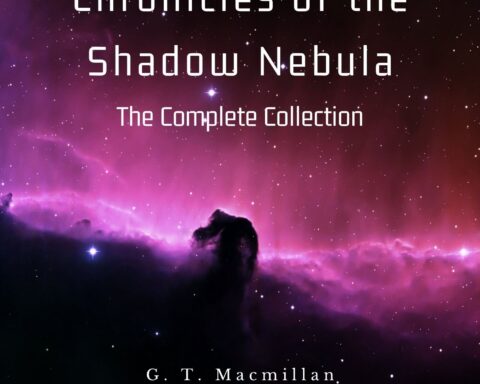Hello there! And welcome to The Rosebush, a free online magazine dedicated to publishing longer form articles about interactive fiction. We have founded The Rosebush because we believe that the interactive fiction community lacks a good platform where in-depth analyses, theory articles, discussions of craft, interviews, historical explorations, and so on, can be published.
This is not because the community is inactive. For discussion and questions, there are a number of active forums, such as The Interactive Fiction Community Forum and the Choice of Games Forum. The IFDB is the go-to place for reviews, while other information about interactive fiction can be collected and shared at the IFWiki. There are also active social media communities, for instance on Tumblr, where Interact-IF can act as a gateway to many authors; and more recently on Mastodon.
When it comes to long-form analysis, several authors publish such pieces at their own blogs, including Jimmy Maher at The Digital Antiquarian, Aaron Reed at 50 Years of Text Games, Jason Dyer at Renga in Blue, and Drew Cook at Gold Machine. But there hasn’t been a general platform for publishing detailed pieces since SPAG Magazine went on hiatus in 2016.This is a void that The Rosebush aims to fill. It will publish substantial articles that increase our understanding of interactive fiction, from individual works or authors to design patterns, community structures and historical trends. The intended audience consists of both players and authors of IF.
What is the scope of the magazine?
Interactive fiction is a term with many uses. The focus of The Rosebush lies on digital works in which a player interacts with a pre-written story where text is the main medium. In particular, The Rosebush will publish about both parser-based and choice-based interactive fiction. While tabletop role playing games, computer role playing games, and choose-your-own-adventure books are also interactive fictions in a sense of that term, they are not our primary topic. Most of the organisers of The Rosebush come from the communities around the Interactive Fiction Competition, the Spring Thing, the IFDB, and so on; but we explicitly also intend to publish about the works of adjacent communities, such as the Choice of Games community and the retro text adventure community.
What is the magazine looking for?
Articles! See below for the detailed call for articles. It is possible to either submit a pitch, which we will check to see whether the topic is suitable for The Rosebush, or an article. Links to submission forms can also be found below.
At the moment we are not actively looking for editors, but of course this may change.
What does The Rosebush offer authors?
Most importantly, a place for disseminating your articles. The Rosebush will maintain its website and ensure that all articles are also stored on the IF Archive, the best guarantee for perpetual availability in the current world of interactive fiction. In addition, the editorial team will work with you on your article, which can range from simple spelling/grammar editing to more substantial ideas and feedback on improving your piece.The Rosebush is an entirely volunteer effort. There are no plans to offer a monetary compensation to authors of articles.
Who are we?
Editors
- Aster Fialla (se/er)
- Benjamin Slade (he/they)
- Daniel Stelzer (they/them)
- Josh Grams (he/him)
- Kiana Lee (she/her)
- Mike Preston (he/him)
- Mike Russo (he/him)
Associate Editors
- Victor Gijsbers (he/him)
- Zee (they/them)
Call for articles and pitches
The Rosebush is looking for substantial (1,500+ word) articles examining the theory and practice of interactive fiction. We hope to publish pieces such as:
Analyses of a game or a group of related games (same theme, or author, or genre, etc.). Analyses are different from reviews in being focused on understanding their subject, rather than toward judging their worth. Analyses are both allowed and expected to include spoilers of the referenced games.
Articles that develop the theory of interactive fiction, or discuss specific techniques of craft or art.
Interviews with IF authors, especially as they prompt perspectives that might not have occurred to the authors in postmortems etc.
Articles on the history or sociology of interactive fiction.
The magazine is a not-for-profit volunteer effort, and pays neither its editors nor its authors. Articles are published under the CC-BY-NC-ND Creative Commons license (or a more permissive version of the license, author’s choice) on the magazine’s website and the IF Archive. Authors retain copyright of their articles.
One or more editors will work with the author on the article – at minimum to check things like spelling, but if desired, also to improve structure or content.
Interested authors can submit complete articles, or a short pitch to see whether an article idea is a good fit. There is no closing date for submissions, as editors will decide whether to publish an article on a rolling basis. We anticipate that the publication will launch in July of this year.



